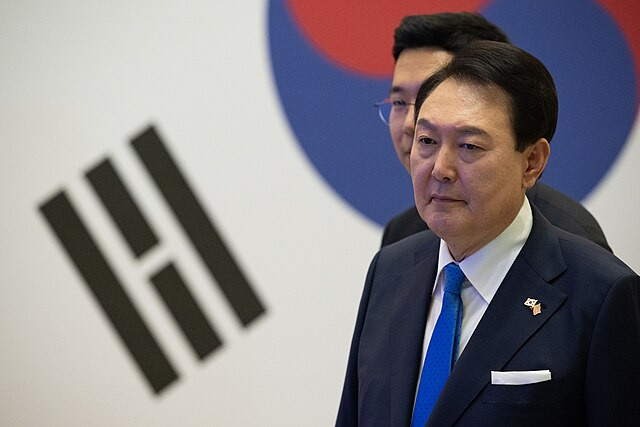South Korea's National Assembly voted early Wednesday morning to overturn President Yoon Suk Yeol's surprise martial law declaration, marking a dramatic escalation in the country's political turmoil. The parliamentary decision, made within hours of Yoon's announcement late Tuesday night, underscores the president's struggles with a powerful opposition and raises questions about the stability of Asia's fourth-largest economy.
Yoon declared martial law citing the need to "eliminate anti-state forces" that he accused of sympathizing with North Korea. His move was met with swift backlash from lawmakers, including his own conservative People Power Party. The National Assembly Speaker Woo Won Shik condemned the declaration, stating that lawmakers "will protect democracy with the people."
Under South Korea's constitution, the president is required to comply with the National Assembly's decision on martial law. Within three hours of Yoon's announcement, 190 of the 300 lawmakers convened and voted to lift the decree. Soldiers and police officers stationed around the National Assembly grounds were ordered to withdraw following the vote.
Yoon's declaration, the first invocation of martial law in South Korea since 1980, prohibited political activities deemed to "incite social disorder." The military announced that all political gatherings were suspended, and striking doctors were ordered back to work within 48 hours. The military also warned that violators could be arrested without a warrant, according to Yonhap news agency.
The decision triggered immediate economic repercussions. South Korean stocks fell sharply in U.S. trading on Tuesday as fears of political instability gripped investors. The iShares MSCI South Korea ETF, which tracks major South Korean companies, dropped as much as 7% before paring losses to close down 2.6%. Companies such as Coupang and Korea Electric Power saw their shares plummet, while the South Korean won dropped 1.9% against the U.S. dollar.
The Korea Exchange responded by announcing an emergency meeting to determine whether to delay the market's opening on Wednesday.
The White House National Security Council weighed in on the situation, stating, "The Administration is in contact with the ROK government and is monitoring the situation closely."
Yoon's martial law declaration and its swift reversal have intensified political divisions. The president's accusations that opposition parties sympathize with North Korea have drawn criticism, with many viewing his actions as an attempt to consolidate power amid his struggles with an opposition-controlled parliament.




